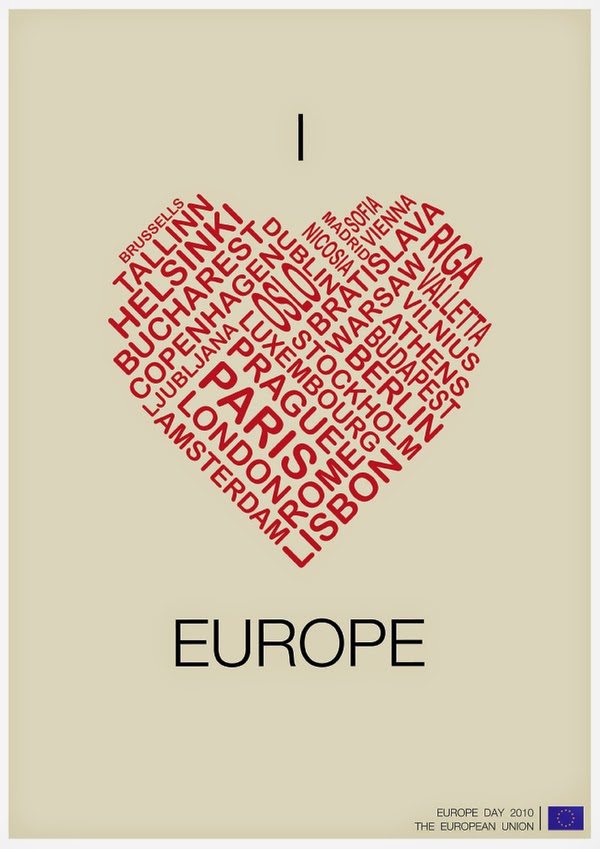The first American ever to love Europe, excluding all those other Americans who loved Europe first
 I have been living in Europe for the last six years, working, playing pro basketball, and traveling as much as I can. I have totally fallen in love with this continent. So much to see, so much to do, and so many cultures to embrace. I have now had the privilege of exploring many of the iconic and must-see major cities in Europe like Rome, Athens, London, and Paris; in addition to the equally exciting but less mainstream cities of Mostar, Ljubljana, Aix-en-Provence, and Brasov.
I have been living in Europe for the last six years, working, playing pro basketball, and traveling as much as I can. I have totally fallen in love with this continent. So much to see, so much to do, and so many cultures to embrace. I have now had the privilege of exploring many of the iconic and must-see major cities in Europe like Rome, Athens, London, and Paris; in addition to the equally exciting but less mainstream cities of Mostar, Ljubljana, Aix-en-Provence, and Brasov.My European friends are amazed that I have no desire to return anytime soon to the U.S. (I've been offered to exchange passports many times). To them, the U.S. is the ultimate travel destination, but not for me. I've lived in 8 states, been to 49 states (not Michigan), Puerto Rico, the U.S. Virgin Islands, Guam, driven cross-country twice, plus visited Canada and Mexico many times. My North American resumé is pretty complete.
My American friends are confused as to what is so great about Europe (most of them have never been and a few have had trouble adapting to the difference in culture). I've adapted and I want to stay. I have a travel bucket list now, and I am aggressively pursuing a blackout bingo card of European countries. Here are the top 7 reasons I love living in Europe based on my experiences over the past six years:
1. It's still new for me
I have already been living in Europe for six years and have barely scratched the surface of what it has to offer. I've been to 32 of the 50ish (it's complicated) European countries, and many of those trips have only been to one or two cities in that country. If you have been to Spain, you will know that Barcelona is not much like Madrid, or in France, that Paris and Marseille have so many differences. Most of my trips are over long weekends, so I only spend a brief time in each country. That's not enough for me. I want to do it all. It's still too new to leave.2. Europe is accessible from Europe
3. The people are diverse and receptive to Americans
Again, two hours in any direction, and I'm encountering a new people. The mentality and customs of each country are so distinct and interesting. Europe is exposed to American culture via television and movies, so they know quite a bit about us (sometimes more than me), and when they meet me in person, they are really excited (that may not be because I'm an American, but because I'm awesome). Especially in central and eastern Europe, where many more are fluent in English because they don't dub television and movies, they are friendly and curious as to why I'm here in Europe. They want to see if I am from the same place as their favorite actor or singer, and if people in the U.S. are as crazy, stupid, funny, exciting as on TV. Western Europe has more exposure to Americans, so we are not as special there. But, in all of Europe, if you have a genuine interest in their culture, they are more than happy to share it with you.
4. I like learning languages, and there are many to choose from here
Also, the standard for fluency in languages here is higher. In the U.S., if you know more than one sentence in a language, you are the Rosetta Stone incarnate, and you walk around saying your few lines like a linguist (Dexter's Lab). In Europe, you could be darn near fluent in English, yet be hesitant to speak it because it's not 100% perfect (super common in Germany).
5. I'm no foodie, but the food is good
 |
| Paella for Christmas |
Coming from the land of lawsuits, where there are signs and warnings on everything, it is refreshing to finally be able to use my common sense. In Europe there are many places that are dangerous or susceptible to something going wrong, and there are no signs and no warnings, so if you hurt yourself or cause damage, you are just an idiot and now people know.

I was in Copenhagen looking at the Little Mermaid statue and it was snowing and the statue is off shore, but accessible by several slippery rocks, with no handrail and nothing to prevent you from falling into the water or cracking your skull on the rocks, yet there were people lined up to walk out and get a picture with the statue. The mantra here is very much: If you are brave enough to try it, you get to live with the consequences, good or bad.

I was in Copenhagen looking at the Little Mermaid statue and it was snowing and the statue is off shore, but accessible by several slippery rocks, with no handrail and nothing to prevent you from falling into the water or cracking your skull on the rocks, yet there were people lined up to walk out and get a picture with the statue. The mantra here is very much: If you are brave enough to try it, you get to live with the consequences, good or bad.
7. There is more to life than work
There are workaholics everywhere in the world, but it seems the U.S. is heavily populated with them, likely due to the capitalistic society and the American dream of getting out what you put into it. Many Americans never even take vacations. In Europe, a vacation, or holiday as they call it, is not a matter of if, but when and how long. Coffee breaks and extended lunches are not privileges, but rights. Most stores don't even open until 9am or 10am and still close by 8pm, plus you will surely see employees taking several smoke breaks throughout the day. In Italy and Spain, the shops close in the middle of the day for a "siesta" or "reposo", a break for a few hours so people can go home and have a long lunch with their families. As a devout culture-embracer, I do my best to emulate my European friends!
| Work to live, not live to work |
What do you think?
This list is based on my experiences and I'm curious if you agree of disagree. For the non-Europeans, what experiences you've had? For the Europeans, how do you feel about these? What do you like about the U.S. or other cultures? Thanks for reading!Check out the 12 Things This American Can't Stand Living in Europe
(all images used in this post are from other sources and not my own)
















0 comments:
Post a Comment
Thank you for your comment! It will be reviewed and then posted shortly. See you on the next adventure!